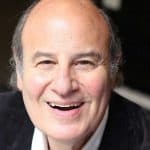by Steven Lipman
Before You Write…
Since the dawn of time, humans have expressed thoughts in writing. Whether documented on cave walls, ancient papyrus scrolls, hand-scribed Medieval codices, printed books beginning with Gutenberg, or computer devices in our day, the importance of communicating through written means has been a constant.
Those of you engaged in writing college essays about music, grad-school term papers, or applications for careers in the music industry are gaining awareness of the importance of developing solid writing skills. When communicating in writing with a party you have not yet met, your words will shape their first impression of you. Create your prose with care and precision.
Who Am I Talking to?
As a music journalist and editor, I offer some general observations that may prove helpful for those seeking to make a career in music. First, understand your audience. Are you writing a music personal statement or musical resume for a college admissions officer or someone who you hope will become your future boss? Make sure to adopt the proper tone. As you begin to network in the music industry, determine whether your missive should be business-like, warm and personable, or a combination of both. Know when to be formal and when it’s ok to be informal and conversational.
Writing a novel where you rely colorful imagery to portray a scene and have hundreds of pages to do it, is different from something of more limited scope. Be aware of when to express your thoughts as concisely as possible. Weed out extraneous words that don’t add meaning and clutter your ideas. I’m not advocating for dry, facts-only writing unless that is what’s needed (as in a résumé). In a personal essay, strike a balance by using colorful language and injecting some personality, but refrain from going down a bunny trail off topic. If your project or music college essay has a prescribed word count, make every word count!
Writing concisely takes discipline and effort. French philosopher and mathematician Blaise Pascal is quoted as writing: “If I had more time, I would have written a shorter letter.” It takes time and effort to make sure your document is tightly written and says what you need it to.
Noteworthy Basics
As with a great piece of music, make sure you have a catchy opening. Readers will form an opinion instantly about whether they are in for an interesting read or not. Make sure the areas you want to cover are balanced. Be mindful of how much space you want give to each topic you plan to address and give each its due. Alluding to music again, you need a strong finish, a thought-provoking ending.
There are countless common grammatical and punctuation mistakes, here are a few that crop up often. Be on the look out for disagreements between the subject and verb in a sentence. Make sure singular nouns are matched with singular verbs and vice versa. Avoid overly long sentences spliced together with numerous commas. If your sentence has too many ideas, break it into shorter ones so that your reader hasn’t forgotten your main point by the time he or she gets to the final period.
Be sure that you fully understand the definitions of any unusual words you choose. If there is any doubt, look it up. A misused word speaks volumes to your reader. As an editor, I encountered writers who had fallen in love with a pet word and were reluctant to give it up it even after learning it didn’t mean what they thought. Be as willing to change a misused word as you would to correct a wrong note.
Thinking of pet word choices, watch out for echoes. By that I mean the overuse of distinctive words—especially in a single or consecutive sentences. Use the find option in your word processing program to check the number of times a word appears.
Never Forget
Always take the time to proofread carefully. Often while writing, we get to the point where we no longer see typos or other issues. Have a parent, teacher, or a friend proof your document. If that’s not possible, take a break. Leave your draft over night if time permits and come back to it with fresh eyes another day. It never feels good to discover typos in your document after you’ve sent it out.
Most likely we are not writing things for the ages like Beowolf or the Dead Sea Scrolls, but your story is important here and now. The goal is to hold someone’s interest and convey information. Care as much about expressing yourself in writing as you do in music. Make it your best effort.
Help Writing College Essays for Music School Admissions
Inside Music Schools helps to prepare students for applying to music school. Contact us today to learn more about our services & how we can help.
Founder & President at Inside Music Schools | Insidemusicschools.com
Head of admissions and faculty member at Berklee College of Music for 40 years, Steve Lipman and our team at Inside Music Schools speak music as their primary language. We approach each client contact with open eyes, ears, and minds. As the country’s premier music school consultant, he has advised students from the United States, Canada, the U.K., India, Singapore, Dubai, China, Australia, Turkey, Colombia, Argentina, Brazil, Japan, Israel, Italy, Russia and elsewhere.

